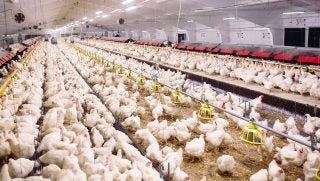U.S. Sen. Deb Fischer (R-Neb.), Chuck Grassley (R-Iowa), Jon Tester (D-Mont.), and Ron Wyden (D-Ore.) released an updated version of their legislation, the Cattle Price Discovery and Transparency Act. The senators first introduced the bill in November. The updated bill comes after hours of deliberation with leaders of the Senate Agriculture Committee and weeks of technical feedback from the U.S. Department of Agriculture.
The updated bill would:
- Require the Secretary of Agriculture to establish 5-7 regions encompassing the entire continental U.S. and then establish minimum levels of fed cattle purchases made through approved pricing mechanisms. Approved pricing mechanisms are fed cattle purchases made through negotiated cash, negotiated grid, at a stockyard, and through trading systems that multiple buyers and sellers regularly can make and accept bids. These pricing mechanisms will ensure robust price discovery and are transparent.
- Establish a maximum penalty for covered packers of $90,000 for mandatory minimum violations. Covered packers are defined as those packers that during the immediately preceding five years have slaughtered five percent or more of the number of fed cattle nationally.
- The bill also includes provisions to create a publicly available library of marketing contracts, mandating box beef reporting to ensure transparency, expediting the reporting of cattle carcass weights, and requiring a packer to report the number of cattle scheduled to be delivered for slaughter each day for the next 14 days. The contract library would be permanently authorized and specify key details about the contents that must be included in the library like the duration of the contract and provisions in the contract that may impact price such as schedules, premiums and discounts, and transportation arrangements.
U.S. Cattlemen’s Association’s President Brooke Miller said, “A study compiled by Texas A&M’s Agricultural and Food Policy Center forecasted that without enactment of significant cattle market reform legislation, like the Cattle Price Discovery and Transparency Act, negotiated trade in Texas-Oklahoma-New Mexico is expected to fall to zero percent by 2026.
“Zero percent negotiated trade is the end of the independent producer, and with it, a sovereign and secure food system. We cannot allow corporate interests to steer a sinking ship – we need to immediately restore marketplace fundamentals and implement guardrails to prevent the industry from capsizing.” Miller continued, “USCA is pleased that this legislation will provide additional economic analysis to define robust cash trade, based on current market conditions.”
“Our family farmers and ranchers have told us about the need for both robust price discovery and transparency in the cattle markets. The updates to our legislation incorporate a variety of stakeholder feedback to achieve our goal of ensuring more fairness in cattle markets. It’s encouraging to see our bill gain momentum and I am hopeful we will have a hearing on this important legislation in the Senate Agriculture Committee in the coming weeks,” said Senator Fischer, a member of the Senate Agriculture Committee.


